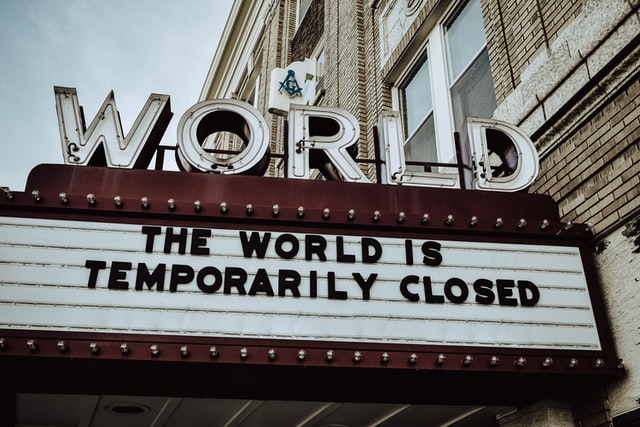Calculating the Minimum Order Quantity (MOQ) is essential for good inventory management. It helps you calculate how much inventory you need accurately, thus freeing up more money and saving you warehouse space.
So, what is MOQ all about? We tell you everything you need to know about it here.
What is MOQ (Minimum Order Quantity)?
MOQ Meaning: The minimum order quantity is the least amount of stock you can order from a supplier. If you can’t buy the MOQ of a product you need, the supplier won’t sell it to you. It is calculated by every supplier independently and varies depending on the product.
Items with high value tend to cost more to produce and are likely to have lower MOQs. Lower value items, on the other hand, are usually easy and inexpensive to produce and hence have higher MOQs. In the former case, your suppliers can make a profit even by selling smaller quantities. In the latter case, they’re counting on numbers to make a profit, and thus need you to buy more as well.
Why MOQ is important?
Suppliers set minimum order quantities after accounting for the total cost of inventory and any other expenses they may have incurred while sourcing it. Essentially, correctly chosen MOQs help suppliers increase their profits while selling off inventory quickly. MOQs also help suppliers identify which retailers they can do business with.
For retailers, MOQs play an important role in getting the best possible price per unit. This is usually the case when you buy products in bulk from your supplier because bulk purchases lower the per unit cost, allowing you to maximize your profit when you sell each unit.
However, remember that when you buy the MOQ from your supplier, you will be investing a good amount in inventory alone. So, you need to ensure that you have the capital to purchase/seek credit for the entire quantity. Plus, you’ll also need money for day-to-day operations.
To understand this better, let us consider a situation where it costs you $20 each for an MOQ of 1000 units. This means an upfront cost of $20,000 for the stock alone. In addition to this, you will also need to spend on other aspects like shipping and perhaps customs just to get the product to your warehouse.
How to deal With MOQs as a Retailer?
As a retailer, handling MOQs right would involve presenting yourself as an ideal client to your supplier while ensuring that the deal you are striking is the most beneficial to you. How do you go about this?
Negotiate a lower price
Don’t ever assume that the price being offered to you can’t be lowered. There’s always room for negotiation.
Try to get vendors to lower the price. Even if you’re unsuccessful in the attempt, you can always revisit the pricing once you develop a good relationship with them. Likewise, you can convince your supplier to offer lower prices to you when they’re having a lean period or they have excess stockpiling on.
Seek out and buy from suppliers on established wholesale markets online
Such marketplaces help you obtain products from a host of suppliers, allowing you to compare prices and deals that best match your needs. However, one thing you need to keep in mind while buying from suppliers on online marketplaces is that you need to assess the suppliers independently even if the marketplace has assessed them already. Don’t go by reviews alone and always run your own checks.
Buying from online B2B marketplaces can prove to be quite advantageous for you as a retailer because you can choose from a wider pool of vendors offering the same product.
Purchase from a trader
Getting a trading company to place an order for your inventory can also work out for you.
Because trading companies can place one order for multiple retailers, they can meet the supplier’s MOQ without you having to stretch your budget or take the whole inventory. So, multiple retailers can enjoy the benefits of a lower priced MOQ and holding just as much stock as they need by buying through traders.
Making The Best Of MOQs


Here are few tips to keep you from incurring losses and make the most of MOQs.
- In the event that you’re unable to meet a supplier’s MOQ because you can’t store a lot of inventory at once, you can’t pay for the MOQ upfront, or you just don’t need that much inventory, ask your supplier if they can supply the inventory to you in batches over a few months. While not too many may be open to this, some may agree if they see you becoming a regular customer.
- See if you can have the materials being used substituted for a less expensive alternative. This will lower the production costs considerably and hence the price of the MOQ. However, remember that doing so could mean compromising on the quality of the goods being produced.
- One great way to meet MOQs when you have budget constraints is to go the way of crowdfunding and selling pre-orders. This allows you to acquire the funds for the products you need upfront while meeting your supplier’s MOQ without worrying about spending from your own pocket. If you’re looking to try this approach, ensure that you spend some time doing enough research to understand if customers are willing to wait for their orders for longer.
- Ask your vendors for credit and pay them back as you sell your products. This is the approach that most retailers use today. You’ll need to agree on a set repayment schedule and amp up marketing to get enough funds to pay back the credit amount.
A Word Of Caution
You may be tempted to try to lower your supplier’s MOQs as much as possible. And while some suppliers actually go as low as they can, know that you may have to deal with the following issues:
- Very low MOQs may force suppliers to produce and provide low-quality goods so that they can maintain profits. This is likely to make your products less durable and hence affect your profits.
- In the event that the MOQs are so low that your suppliers are losing out on their profits, they may be less keen on doing business with you and choose to prioritize other clients.
It’s important to keep in mind that MOQs are just one of the many considerations that you have to make. Factoring in your rate of inventory turnover and reorder point is also just as crucial to help you manage your inventory smoothly.
Indeed, you can see if supplier MOQs make sense only by calculating your own reorder point for that product. Or you’d be paying not just for too much inventory but also the cost of storing it for longer.
Request Demo
thank you
thank you
thank you
Request Demo
window.IS_INDIA = 0;window.USER_COUNTRY = 'China';window.USER_CITY = 'Hangzhou';window.USER_COUNTRY_ISO = 'CN';
Armed with a degree and a pen, loves to tell stories. When not telling stories, she also works. Hard to decide which one she likes more.
(function(d){var s=d.createElement('script');s.type='text/javascript';s.src='https://a.omappapi.com/app/js/api.min.js';s.async=true;s.dataset.campaign='cxecxy09nlvnnyvfiqjf';s.dataset.user='22867';d.getElementsByTagName('head')[0].appendChild(s);})(document);
,



